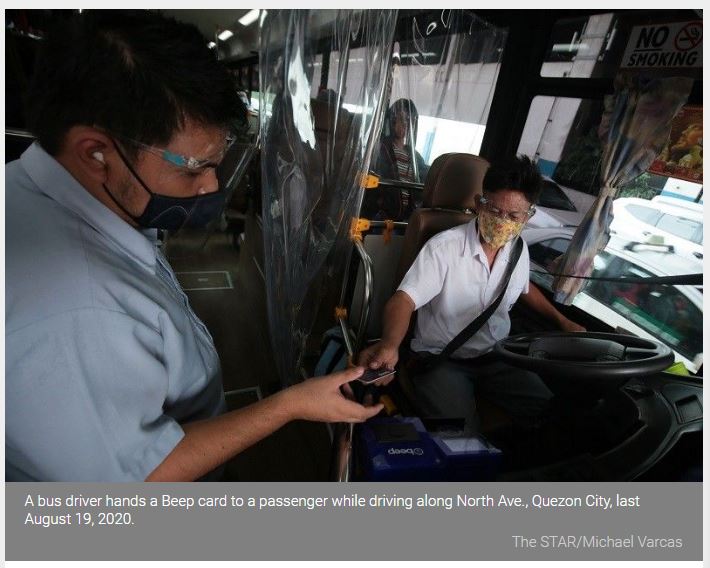Philippines: Inflation-hit workers rather tighten belts than risk lay off with wage hike
MANILA, Philippines — A spike in inflation would typically prompt Filipino workers to call for a wage hike. But not this year.
Some labor groups are holding back from asking for an increase in daily minimum wage last adjusted nearly 3 years ago over fears doing so would only exacerbate business shutdowns, leaving them jobless and hungry. It is an unusual sacrifice that workers directly hit by expensive food prices are willing to take, if that means keeping their jobs during the hard times.
“We are trying to make a balance,” said Alan Tanjusay, spokesperson of the Associated Labor Unions – Trade Union Congress of the Philippines, the country’s largest labor organization.
“Our economy is in deep recession,” Tanjusay said. “We have high unemployment and surging underemployment. Many companies are still shuttered and many are also recovering.”
Bukluran ng Manggagawang Pilipino chair Leody de Guzman also said they are more concerned with stopping layoffs. “A wage hike is okay because workers who still have jobs get so little,” De Guzman said in Filipino.
“But now that layoffs are continuing, I think it would be better for us to address this,” he added.
In Metro Manila, minimum wage was last adjusted to a range of P500-P537 a day in 2018 when tight rice supplies pushed consumer prices up 5.2% year-on-year, the fastest in over 9 years. Inflation had since slowed down, thanks to a combination of bigger rice imports and last year’s dent in consumer demand from the pandemic.
But with a vengeance, inflation is crippling back up, threatening a fragile recovery that places high bets on consumers left jobless by the health crisis. Central bank Governor Benjamin Diokno said a wage increase would not have material impact on their inflation projection this year, forecast that already hit the target’s ceiling of 4%.
Yet employers did say any salary increase at this time would be counterproductive. “It’s bad timing,” Sergio Ortiz-Luis, president of the Employers Confederation of the Philippines, the umbrella group of businesses for labor matters.
“We sympathize with the labor groups already hurting from high prices of basic goods and services, but how can you raise salaries if that means businesses closing shop because of additional costs?” Ortiz-Luis said in a phone interview.
Wage subsidies an option
Ninety-nine percent of local firms are micro, small and medium enterprises, employing around 65% of the total workforce. These firms, Ortiz-Luis said, do not have sufficient capital, and at this time cash flow, to fund a wage hike. The government had also ruled out saving failing firms with taxes, while scaling down last year’s assistance to small companies as the economy slowly reopened.
The result is firms, and workers, appear to be on their own in navigating through this sluggish rebound. Leonardo Lanzona, an economics professor at the Ateneo de Manila University, said a government wage subsidy would go a long way.
“Firms are unnecessarily burdened by wage costs during a pandemic. [This] may cause more layoffs,” Lanzona said.
Sonny Africa, executive director of IBON Foundation, a non-profit think tank, agreed, saying in a text message that subsidies are part of the “real stimulus the economy needs to spur recovery.”
The labor department had thrown its support for an assistance, and is seeking budget for it. Yet some labor organizations like Kilusang Mayo Uno (KMU) are still unconvinced companies cannot shoulder higher compensation and would proceed with a formal petition. “Our workers badly need this,” KMU secretary general Jerome Adonis said in Filipino. KMU will ask for a P100 increase on February 22.
Relaxing lockdowns would mean more businesses can restart operations and hopefully restore profits so that higher salaries may be supported. But for Ortiz-Luis, changes in quarantine status would be for naught without sufficient public transport, and other support to struggling companies.
Inflation is unlikely to slow down in the coming months, the central bank has said, and for now, everyone would only have to tighten their belts. “Our priority right now is to keep the jobs that we have,” Ortiz-Luis said.
Source: https://www.philstar.com/business/2021/02/19/2078684/inflation-hit-workers-rather-tighten-belts-risk-lay-wage-hike


 English
English




